SECURE YOUR IOT ECOSYSTEM
IOT PENETRATION TESTING
Our Internet of Things (IoT) penetration testing is an ethical hacking security assessment carried out to find critical security vulnerabilities that put your ATMs, automotive technology, smart homes, medical devices, operational technology, and other embedded smart devices and networks at risk of a cyberattack and provide actionable remediation recommendations.
Tell us
about your scope
What You'll Get

Key findings, risks, impacts, and critical recommendations.
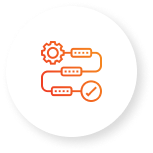
Overview of methodologies, standards, tactics, and techniques used.

Detailed vulnerability analysis, reproduction steps, PoC, evidence.

Strategic and tactical walkthrough on how to fix vulnerabilities.

Comprehensive advice on cybersecurity enhancement strategies.

Offered once vulnerabilities are fixed.
IOT SECURITY STARTS HERE
What is IoT Penetration Testing?
At its core, the Internet of Things (IoT) refers to a vast array of physical devices — from smart home appliances and security systems to industrial sensors and healthcare monitors — all interconnected via the Internet, along with their associated software, hardware, and networks. The extensive connectivity of IoT devices to the internet inherently raises significant security concerns. Companies are expected to have concerns over their IoT security as the ever-increasing number of smart devices used for business operations in today opens up a much broader attack surface for cyber-attacks. In other words, the number of entry points available for hackers nowadays is massive. Such security breaches may lead to exceptional financial losses, data and identity theft, compliance issues, unauthorized use of IoT devices, and costly downtime.
IoT Penetration Testing is a critical process that involves methodically evaluating IoT devices to identify vulnerabilities within their security frameworks that malicious unauthorized users may target to infiltrate a business network. At Secragon, we specialize in predominantly manual penetration tests, conducted by experienced ethical hackers. We leverage industry-standard methodologies alongside a unique mix of public and proprietary, in-house developed exploits. Our approach is specifically designed to delve deep into the security architecture, uncovering complex and yet-to-be-discovered vulnerabilities. This ensures a comprehensive security assessment is conducted under safe and controlled conditions, providing a forward-thinking defense against potential future threats.
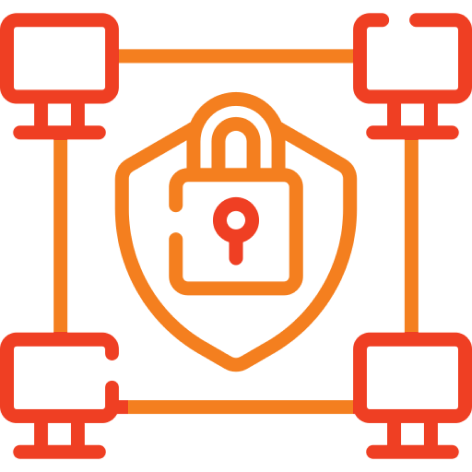
We don’t just point out security holes; we help you solve them and comply with standards and regulations.
The growing prevalence of Internet of Things (IoT) systems makes their security more critical than ever. From individual endpoints to the overall architecture, every aspect of an IoT ecosystem can present potential vulnerabilities.
Protecting the information transmitted through IoT devices significantly reduces the risk of data breaches and security incidents.
As industries evolve, so do cybersecurity standards. Meet legal and regulatory requirements for data security.
IoT Penetration Testing strengthens security in remote work setups, where IoT devices are more exposed to risks on less secure home networks.
Decrease the likelihood of IoT-related disruptions or performance issues, which can impact user experience and business operations.
Minimize the number of potential attack points within the ecosystem, thereby reducing the overall risk of cyber attacks and breaches.
Why Conduct an IoT Penetration Test?
The growing prevalence of Internet of Things (IoT) systems makes their security more critical than ever. From individual endpoints to the overall architecture, every aspect of an IoT ecosystem can present potential vulnerabilities.
PROTECT AGAINST THE LATEST THREATS
When Should You Perform IoT Penetration Testing?
IoT Penetration Testing should be performed as frequently as required by the organizational security policy. In addition to the regular schedule, penetration testing is particularly advisable in the following situations:
New IoT Devices or Systems
Conduct tests to identify and fix any security vulnerabilities before they are accessible to users.
Firmware or Software Updates
Important to ensure that updates or changes haven’t introduced new security risks.
Part of Security Audits
Perform these tests periodically, for example, annually, as a component of your ongoing security maintenance strategy.
Security Breach or Incident
Necessary to fully understand the breach’s impact and address all vulnerabilities exposed by the incident.
Emerging Threats or Vulnerabilities
Essential whenever new threats are identified that could potentially compromise the IoT ecosystem.
New Systems or Technologies
To ensure that any new integrations or technological advancements do not introduce security weaknesses.
We Provide Expert Solutions And Definite Results

Transparent
Pricing
Clear, upfront, with no
hidden costs.

Dedicated Project
Manager
Your security is our
commitment.

Retesting After
Fixes
Ensuring threats are
truly eliminated.

Affordable
Expertise
Premium protection,
reasonable rates.

Customized
Approach
Solutions fitted to your
specific needs.

Proactive
Protection
Effectively securing your
digital assets.
What Will Be Assessed During an IoT Penetration Test?
IoT penetration testing involves a detailed examination, focusing on several critical areas:
Device
Security
Evaluating the physical and digital security features of IoT devices, including aspects like firmware, data storage, and encryption mechanisms.
Application
Security
Analyzing software applications linked with IoT devices, including APIs, web interfaces, and mobile apps for potential security weaknesses.
Network
Communications
Assessing how devices communicate over networks to identify vulnerabilities in data transmission and reception, focusing on the security of wireless protocols.
Ecosystem
Interdependencies
Examining how individual IoT devices interact within the broader ecosystem, including dependencies on external services and cloud platforms.
Authentication and
Authorization Processes
Examining the mechanisms for user authentication and authorization to prevent unauthorized access.
And
More
Depending on the specific IoT setup, additional areas like configuration and patch management processes, user privacy protection, and compliance with relevant standards and regulations may also be evaluated.
Our Penetration Testing Process
If your organization has not gone through a penetration test before, you may not know what to expect. Even if you have, maybe you are wondering what Secragon’s stages of penetration testing are. Here is a high-level break down of each step of our proven process:

Activities: Engage stakeholders, define targets, plan logistics for efficient, transparent execution.
Outcomes: Scope Validation, Proposal, Contract.
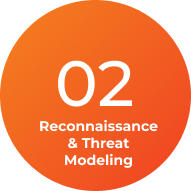
Activities: Environment preparation, OSINT collection, attack scenario planning.
Outcomes: Strategy Development, Threat Insight.
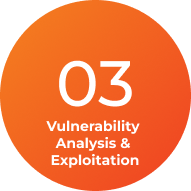
Activities: Vulnerability identification, active exploitation, privilege escalation, execution of realistic attack scenarios, data and information collection, persistence maintenance, and documentation of steps.
Outcomes: Comprehensive Report, including Executive Summary, Technical Details, Impact Analysis, Recommendations.

Activities: Supporting vulnerability remediation with actionable steps and advice, answering follow-up queries.
Outcomes: Remediation Plan, Security Enhancement.
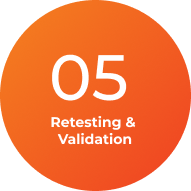
Activities: Validate the effectiveness of remediation efforts through complementary retesting.
Outcomes: Re-test Results, Attestation.
Frequently Asked Questions
Couldn’t find the information you were looking for?
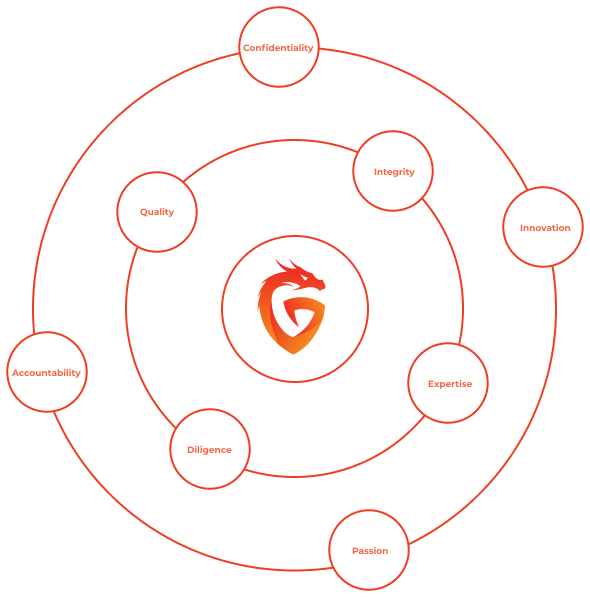
SECRAGON, YOUR CYBERSECURITY PROVIDER
We, at Secragon, are a team of certified ethical hackers, visionary security engineers, seasoned penetration testers, and committed project managers… but first of all – professionals, who LIVE and BREATHE Offensive Security. Along the list of qualifications, titles, and credentials, we bring a real “think outside of the box” mindset to every project and we constantly strive to learn, explore, and push forward to master complex concepts and deliver top-notch services and results.


